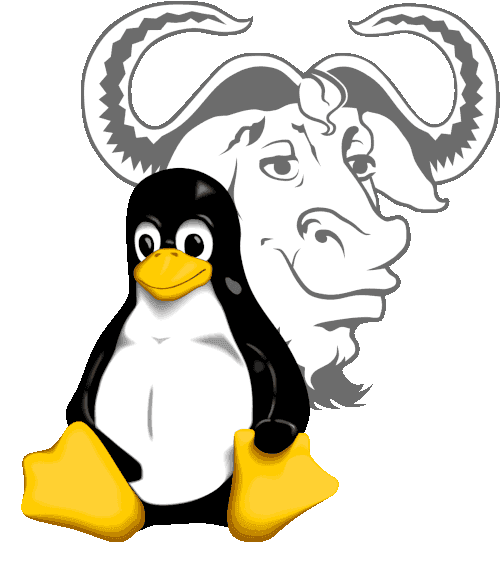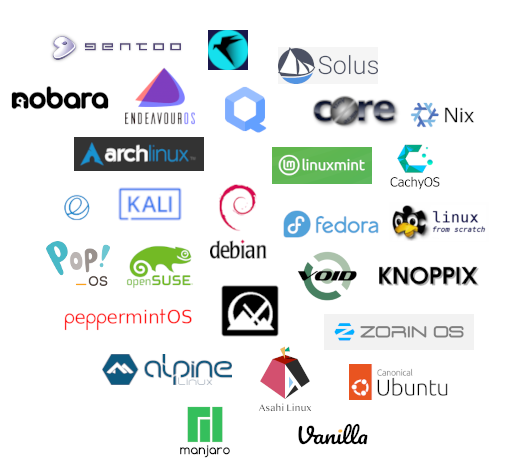When it comes to privacy, Linux is definitely 100 times better than standard PC systems as a desktop operating system!
Why?
Because most Linux distributions are not run by a company, but by a community of enthusiastic individuals. This means that no private data is collected.
What is a Linux distribution?
In addition, there is usually a graphical user interface (UI). The way all these elements are put together is called a distribution.
A Linux distribution naturally includes even more: e.g. an installation script, a package manager for easy installation of programs, an ISO image for installing Linux on a PC, a preconfigured user interface, etc.
If a Linux distribution were a car...
Proprietary software versus open source
Most programs (nowadays they are called apps ;-) are proprietary software. This means that only the manufacturer can see, correct and improve the software code.
In the Linux world, it is exactly the opposite: all software and program sources are open, freely readable and, of course, copying is permitted. BUT to prevent a company from using free program sources, modifying them and then selling them as proprietary software, the programs are protected by the GPL (General Public Licence), i.e. a free software licence.
The term FOSS is also used for Free Open Source Software.
Richard Stallman is the founder of the free software movement and the GNU project, GNU from GNU/Linux.
There are currently over 1000 distributions!
There are currently over 1000 distributions (not all of which are still maintained), tailored to all possible requirements, from PCs, servers and embedded systems in the industrial sector to small single-board computers such as the Raspberry Pi. But there are also Linux distributions for special purposes:
- for older hardware, such as antiX Linux and Alpine Linux.
- For security testing (pentesting), such as Kali Linux or Parrot Security.
- If security and privacy are extremely important, there are options such as Qubes OS, Whonix or Tails.
The possibilities are almost endless!
At some point, you will realise that there is no such thing as a good or bad distribution. It is simply a matter of preference:
- Do you prefer great consistency and stability, such as with Debian
- or would you rather always have the latest version of the programs and operating system, such as with openSUSE Tumbleweed or Fedora?
- Do you want a Linux that is well preconfigured and easy to use, such as Linux Mint?
- Or is it most important to you to be able to do almost everything yourself and retain total control (but only for advanced users, of course)? Then there is Linux Arch or Void Linux, etc.!
There is a Linux distribution to suit every taste, and that's awesome 😊


